Filter the articles:
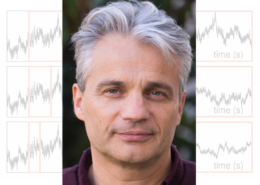
Patrice Abry, winner of the 2024 IMT-Académie des Sciences Grand Prize
Digital, In the News, PortraitComplex systems specialist Patrice Abry played a key role in identifying the fractal nature of Internet traffic as early as 1998. The success of his work, carried out in collaboration with Daryl Veitch, sparked the launch of a series of research projects integrating theoretical advances and applications, particularly in cybersecurity, that have continued over two decades. We review a career that saw techniques evolve with the times, but in which fundamental constants remain.
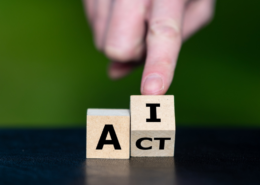
The AI Act makes an entrance
Digital, In the News, SocietyThe AI Act was adopted on June 13, 2024 with the aim of regulating artificial intelligence within the EU. The Act classifies AI systems by their level of risk, and imposes strict restrictions on technologies that pose significant threats to security and individual liberties. How does this differ in comparison to existing frameworks and how will it be implemented? An analysis from Winston Maxwell and Anne-Sophie Taillandier, two AI experts.
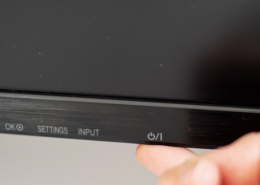
Omni: observing sustainable digital practices in the workplace
Digital, In the News, SocietyBusinesses can no longer ignore the impact that the digital world is having on the environment. At IMT Atlantique, François Deltour and Virginie Lethiais are using the OMNI observatory to explore initiatives rolled out at establishments in Brittany to reduce their digital footprint. Their latest analyses showcase various practices, ranging from raising awareness to more structured measures such as implementing electronic waste reduction policies or purchasing equipment that has been certified with eco-labels.
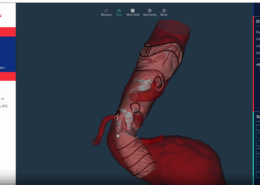
Stéphane Avril: When biomedical research crosses paths with entrepreneurship
Health, In the News, Start-up-enStéphane Avril, Biomechanics professor at Mines Saint-Etienne, is exploring the route of entrepreneurship to take his research work to the next level. In co-founding PrediSurge in 2017 and then KaomX in 2024, he has been creating start-ups to take innovations from the laboratory into the economic sphere. Between technology, filing patents and improving technology readiness, let’s take a look back over his achievements as a researcher-entrepreneur.
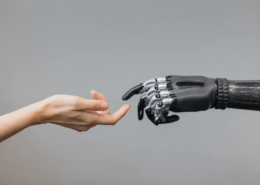
The invisible electronic chip that restores the sense of touch
Europe EN, Health, In the NewsIt could soon be possible to restore tactile sensations for people fitted with prosthetics thanks to the Flexeo project. This research program, led by Mines Saint-Etienne, has entered the second phase after four years of development. Under the supervision of Sylvain Blayac, the team has designed a flexible electronic chip that can detect and reproduce tactile sensations.
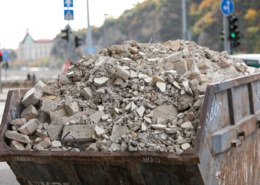
The Cirval chair: working towards a construction industry that uses materials and energy more efficently
Energy & environment, In the News, IndustryMillions of tonnes of waste are produced every year by the construction industry in France. The Cirval industrial chair is therefore devoted to reducing the impact of the sector. The Fondation Mines-Télécom, IMT Nord Europe and a dozen SMEs work together as part of Cirval, developing concrete solutions to recycle, reuse and save resources. At the same time, Cirval works with institutions to adapt standards and facilitate the circular economy in the construction industry.
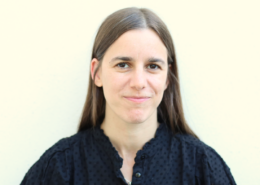
Elsa Dupraz, 2024 IMT-Academy of Science Young Scientist Prize
Digital, In the News, PortraitChannel coding is the focus of Elsa Dupraz's research, a key process for improving information transmission in telecommunications. While the technique’s effectiveness in this field is well known, the researcher is also exploring novel applications, such as data compression and DNA storage. Her research, at the intersection between several disciplines, has fostered multiple collaborations and earned her the 2024 IMT-Academy of Science Young Scientist Prize.
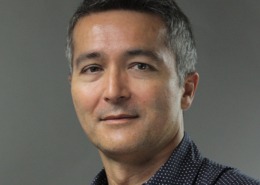
What are neural networks?
Digital, In the News, What's?Neural networks are AI models designed by machine learning. They are inspired by the workings of the human brain and allow machines to carry out different tasks autonomously. Using large quantities of data as examples, they can be trained in image recognition or text analysis. Beyond their predictive performance, a number of scientific challenges still need to be resolved, concerning the understanding of their limits, reliability of their use, and their acceptability, in addition to ethical issues such as energy consumption. Stephan Clémençon, a researcher in artificial intelligence at Télécom Paris, explains more.

Cancer: technology lends a listening ear to parents of children with cancer
Digital, Health, In the News, SocietyHow can technology and social media in particular help and support parents of children with cancer? This is the subject of a project led by Institut Mines-Télécom Business School and funded by the French National Cancer Institute. Anne-Laure Delaunay, a researcher in digital transformation and emerging technologies for management, initiated the project and gives us an inside look.

2G to 5G: the ongoing transformation of mobile networks
Digital, In the NewsMobile networks are constantly evolving, with every decade ushering in a new generation. In this article, Meroua Moussaoui, PhD student at Telecom SudParis, explains just how these networks behind our mobile phones work. She also gives us a sneak peek at the features we might experience after 5G.
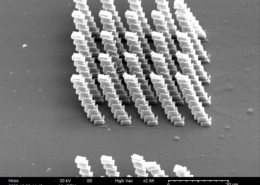
Fabulous laser microstructures
Europe EN, In the News, IndustryIMT Atlantique has developed expertise in parallel photoplotting over many years. The school has therefore taken a leading role in the European FABulous project that will use this method to design functional 3D micro and nano-structures. These high-performance optical and photonic microstructures have applications ranging from the automotive industry to biological cell culture.

Remote work: future trends and acceptance in companies
In the News, SocietyNow a common practice in many companies, remote work is more or less accepted by employees. Advances in technology, the importance of working environments and work-life balance are all key issues in the remote work debate. Chantal Ammi, a professor at Institut Mines-Télécom Business School, has studied the acceptance model of remote work.

Fifty shades of clean water
Energy & environment, In the NewsGrowing awareness of the impacts of pollutant discharge on aquatic ecosystems has highlighted the urgent need for a more rigorous wastewater treatment system. At IMT Mines Alès, two researchers are developing characterization methods for thousands of existing micropollutants. This daunting task is the first step in developing environmental remediation systems.
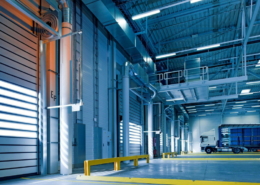
Hyperconnected supply chain networks for improved circularity
Digital, In the News, IndustryIMT Mines Albi drew on a use case on retrofitting thermal vehicles into electric vehicles to develop decision support tools to help companies design their supply chains. This work builds on the principles of the physical internet and aims to improve the circularity of supply chain networks.
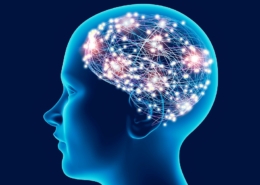
CEREBRO: towards complete non-invasive imaging of brain activity
Digital, Europe EN, Health, In the NewsThe aim of the European CEREBRO project is to create the first electrical contrast medium to provide complete non-invasive images of the brain. Current methods for imaging brain activity using electroencephalography are limited in terms of spatial resolution, and do not cover the whole brain. The product to be developed by CEREBRO is designed to overcome these limitations. IMT Atlantique researchers Adrien Merlini and François Rousseau reveal the details of this project.
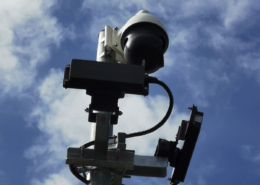
Protecting sensitive sites: AI in radar systems
Digital, In the NewsRadar systems are safe and durable, and used for both detection and surveillance. However, they deliver signals, not images, which can be difficult to interpret. Using artificial intelligence to complement current algorithms offers a technological solution to this problem. The RadaR-IO laboratory, shared by IMT Mines Albi and the company EPSI, is looking to develop and industrialize this solution.
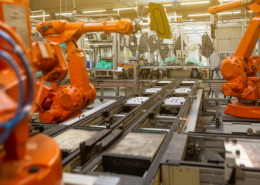
When assembly lines become circular
Europe EN, In the News, IndustryThe recycling market is expanding, even to assembly plants! Using a software ecosystem, the European ALICIA project aims to promote the circulation of production resources. Scientists from IMT Atlantique involved in the project are working to develop a platform to optimize production lines, by minimizing machine changeovers and promoting the use of second-hand resources.

Torrential rain: polluting a long, calm river
Energy & environment, In the NewsIntense rainfall events linked to climate change generate dynamic runoff which, through erosion, removes materials from the soil, including contaminants. At IMT Nord Europe, research teams are carrying out complementary measurement and modeling work to understand how this displaced matter enters the water cycle, and how to better manage territories.

StressID, a multimodal database for detecting stress
Digital, Health, In the NewsStressID is a multimodal database for identifying stress. The project represents one of the largest collections of audio, video and physiological expressions of stress collected from numerous participants. It aims to provide an experimental protocol that is simple to reproduce. Maria Zuluaga, a researcher in the Data Science department at EURECOM, and her PhD student Hava Chaptoukaev tell us all about StressID.
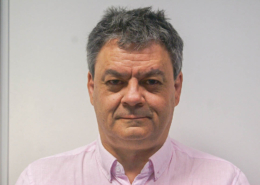
Éric Guibal: an insatiable appetite for research
Energy & environment, In the NewsÉric Guibal, a chemical engineering researcher at IMT Mines Alès, works on the use of biomass and biopolymers for metal recovery. He has received national and international recognition for his scientific contributions, which include numerous publications. He also dedicated part of his career to developing an international scientific collaboration network in Latin America and Egypt.
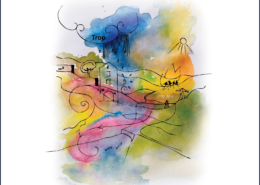
Dwelling with water in the Cévennes: the confluence of research and sketching
Energy & environment, In the News, SocietyFabienne Errero is a doctoral student at IMT Mines Alès, whose research focuses on the interactions between the environment and society in the Gardons river basin in Cévennes. For this trained architect, it was an opportunity to redefine the contours of her profession by factoring in the link between architecture and water. As part of her thesis, Fabienne Errero produced a series of “thought drawings”, enabling her to put forward ideas and build on her thinking. The text and illustrations in this article are taken from this work, created by the researcher.

Mental disorders: when data helps save lives
Health, In the NewsFor several years now, a team from IMT Atlantique has been working in cooperation with doctors from Brest University Hospital and a psychologist from Fondation Bon Sauveur in Bégard to improve early detection of mental disorders such as schizophrenia and to reduce suicidal relapses. The success of this approach based on digital tools lies in the robustness of the analysis and decision models the scientists have developed. It is also dependent on the quality of the health data, which must be correctly recorded by hospital staff.
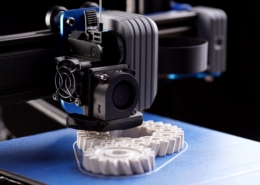
What is additive manufacturing?
In the News, Industry, What's?Additive manufacturing, also known as 3D printing, has multiple applications in various sectors including aeronautics, the automotive industry, healthcare, and the construction industry. Many new developments are underway to optimize the performance of this process. Patricia Krawczak, a Materials and Process researcher at IMT Nord Europe, explains everything you need to know about additive manufacturing.
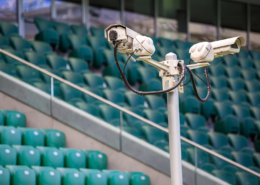
High-level video surveillance for the Paris 2024 Olympic and Paralympic Games
Digital, In the NewsSecurity methods for the Paris 2024 Olympic and Paralympic Games are relying on artificial intelligence, specifically algorithmic video surveillance. However, this technology poses a number of issues, particularly in terms of personal data protection. Claudine Guerrier, legal researcher at Institut Mines-Télécom Business School, tells us more about video surveillance using artificial intelligence.

